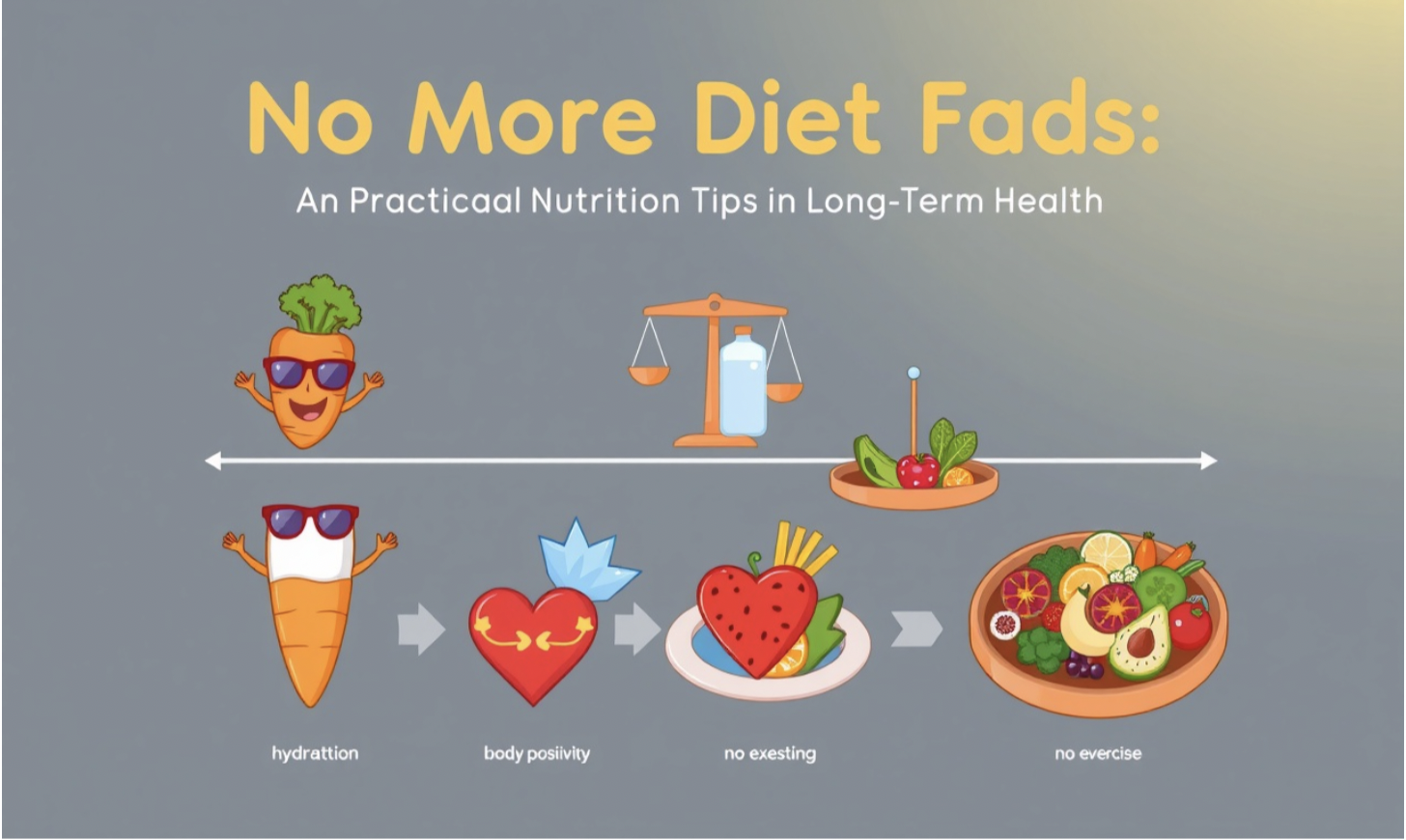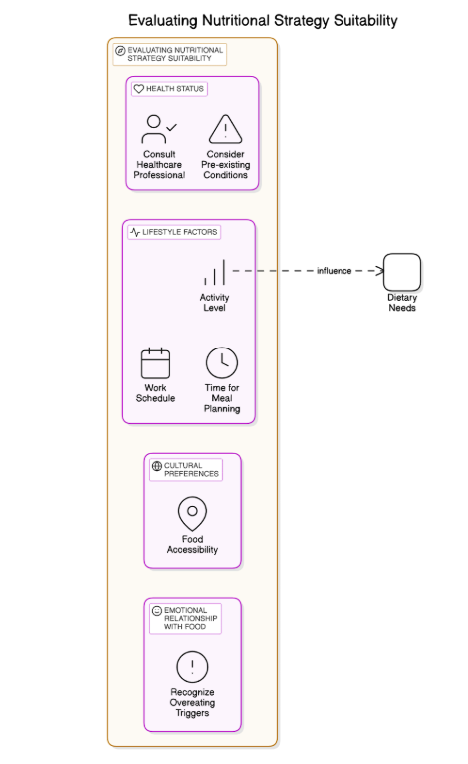
Have you ever stopped to think about how many years you've been chasing diet fads, only to end up frustrated? Many people have tried a dozen or more quick fixes, but did any of them lead to lasting change? Research shows that while short-term weight loss is common, maintaining that success is a different story. The emotional toll can be heavy—guilt and disappointment linger long after the scales tip back up. It might be time to reflect on your health metrics too; tracking changes in blood pressure or cholesterol could reveal the real impact of these fleeting diets. But why are so many stuck in this cycle? Let’s dive deeper…
Sarah had always been the "diet queen" among her friends—jumping from keto to juice cleanses, convinced the next trend would finally work. But after two years of yo-yoing, her energy levels crashed, and her doctor handed her a wake-up call: "Your metabolism’s shot. This isn’t sustainable." Determined to fix things, she doubled down on calorie counting, meal prepping chicken and broccoli like it was her job. By week three, though, the cravings hit hard. "I’m *starving* by 3 PM," she confessed to her sister, staring at her half-eaten salad. "And why do I feel *worse*?" Her sister hesitated before saying, "Maybe… it’s not about willpower?" Sarah’s spreadsheet of "perfect" meals suddenly felt like a trap. That’s when she noticed the pattern: every "fail-proof" plan left her right back where she started—or worse.
The turning point hit during her niece’s birthday party. Sarah barely had the energy to blow up balloons, let alone keep up with the kids. As she slumped on the couch, her sister slid over a plate of cake—homemade, with real buttercream. "Just try it," she whispered. Sarah took one bite... then devoured the slice. For the first time in months, she felt *satisfied*. Later, she caught her mom watching her with worried eyes. "You’re not *you* anymore," her mom said quietly, nodding at Sarah’s untouched second helping of salad. That’s when it clicked: her "perfect" diet was making her miserable—and everyone could see it. Even her coworkers had started tiptoeing around her, leaving donuts in the breakroom with guilty "just in case" notes.
Thank you for this case study example: www.imagingcoe.org
The next morning, she stared at her spreadsheet, the numbers blurring. What if the problem wasn’t her willpower… but the plan itself?
**Burning Questions Answered: Debunking Diet Myths**
Ever wondered why some diets promise overnight results but leave you feeling worse than before? 🤔 Let’s tackle the big myths head-on—because let’s be honest, the fitness world is full of half-truths and flashy claims.
**"Cutting carbs is the only way to lose weight, right?"**
Here’s the thing: while low-carb diets *can* work for some, they’re not a magic bullet. Research shows that *eliminating* entire food groups often backfires, leading to cravings and nutrient gaps. A 2022 study even found that people on balanced diets (yes, including carbs!) maintained weight loss *longer* than those on extreme low-carb plans. The real key? Choosing whole grains over processed junk—your energy levels will thank you.
**"But wait, isn’t more protein always better?"** 🚨
High-protein trends make it sound like you need to chug shakes at every meal. But here’s what gets overlooked: *too much* protein strains your kidneys over time, and unless you’re an elite athlete, you probably don’t need double your body weight in grams. Registered dietitian Dr. Lisa Young puts it bluntly: "Focus on quality—like fish, beans, and nuts—not just quantity." Instead of restrictive plans that drain your energy, options like Carnivore Snax offer a satisfying, low-carb snack made from real meat—no sugar, no nonsense, just fuel that fits a balanced lifestyle.
💡 **Pro tip:** The best diet isn’t a "diet" at all. Studies prove that *sustainable* habits—like eating mindfully and cooking at home—outperform quick fixes every time. For example, a 10-year follow-up showed people who made gradual changes kept off *twice* as much weight as crash dieters.
So here’s the real question: Are you chasing short-term results, or building a lifestyle that actually lasts? Let’s dig deeper…
In exploring how modern eating habits undermine long-term health, we can't ignore the overwhelming presence of processed foods in our diets. Many experts argue that these items, loaded with sugars and unhealthy fats, are major contributors to rising obesity rates and chronic diseases like diabetes and heart issues. Yet, some question whether it's solely about the food itself or if portion sizes—now larger than ever—play a significant role in our caloric intake.
If this trend persists, what steps should we take to foster genuine long-term health?
Creating your personalized nutrition blueprint is a journey, and it starts with understanding where you are right now. Begin by assessing your baseline—take note of your current weight, BMI, any health conditions, and dietary preferences. This gives you a snapshot to work from.
Next up, let's set some macro and micronutrient goals. Aim for balanced ratios of protein, carbs, and fats that fit your lifestyle. Aiming for 25-30 grams of fiber daily? Check that off the list too! 💡 Pro tip: Key micronutrients like iron and vitamin D are crucial; don’t skimp on them.
Meal timing can make a big difference in how you feel throughout the day. Consider aligning your meals with your body’s natural rhythms or your workout schedule—this can help fuel those important sessions!
Now onto hydration: aim for about half to one ounce of water per pound of body weight each day. Staying hydrated supports everything from energy levels to digestion.
Don’t forget to track your progress! Weekly weigh-ins or even logging energy levels can help keep you accountable. And remember the 80/20 rule—enjoying indulgences while prioritizing whole foods makes this sustainable.
If these steps still leave questions lingering, just know there might be more layers to uncover on this nutrition adventure!